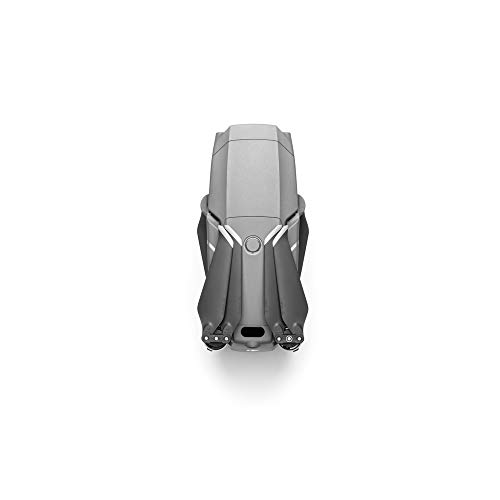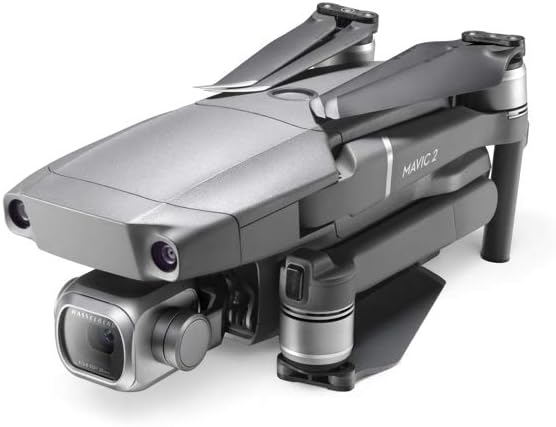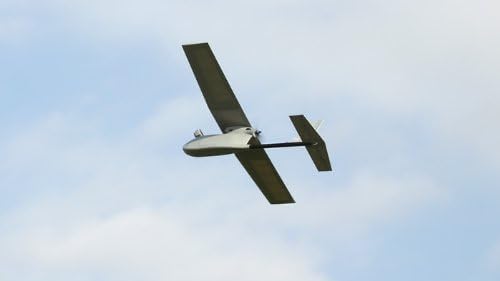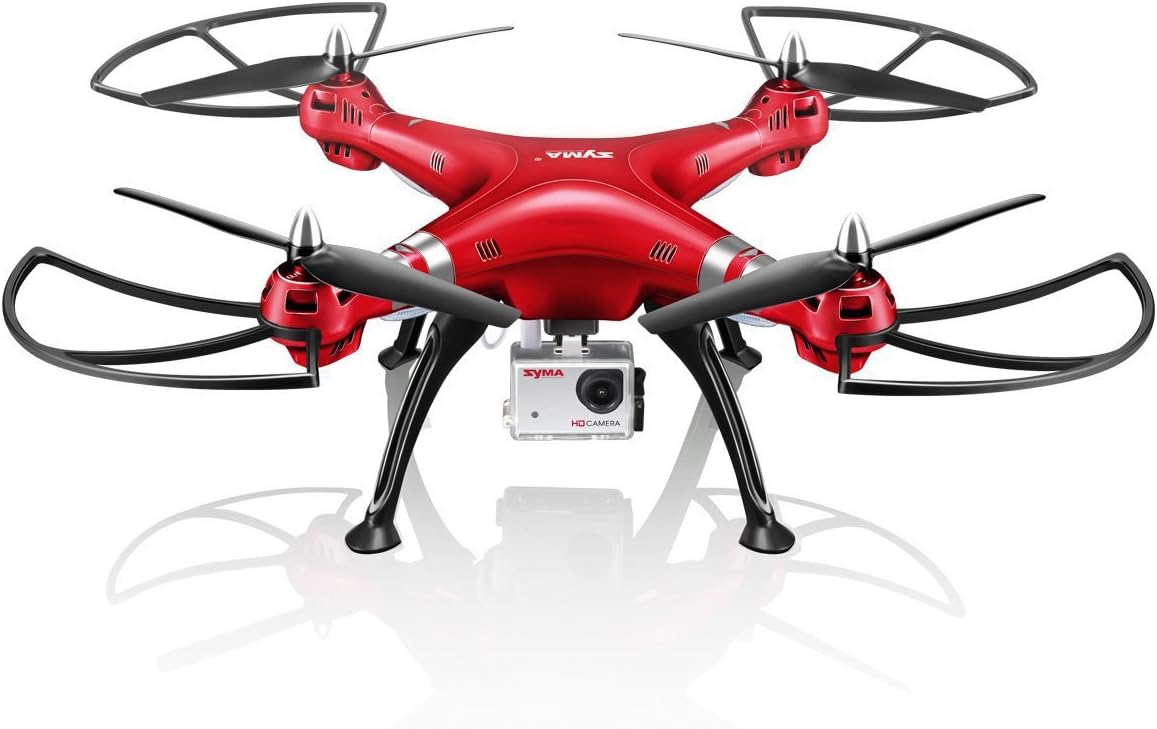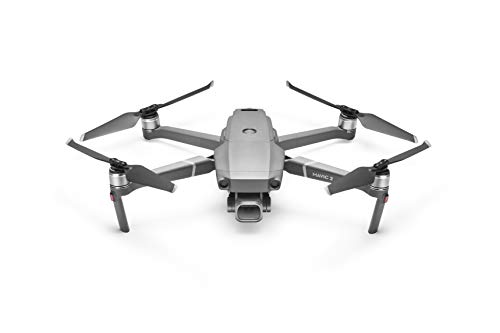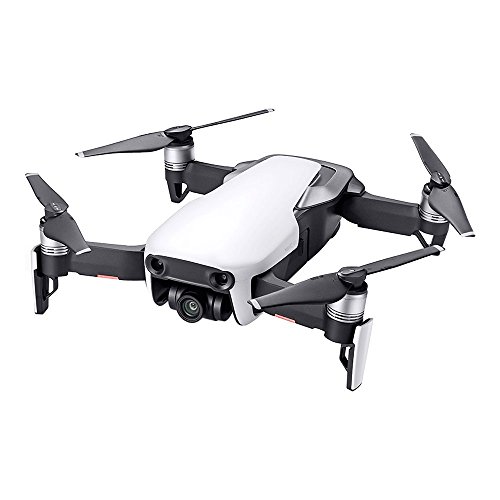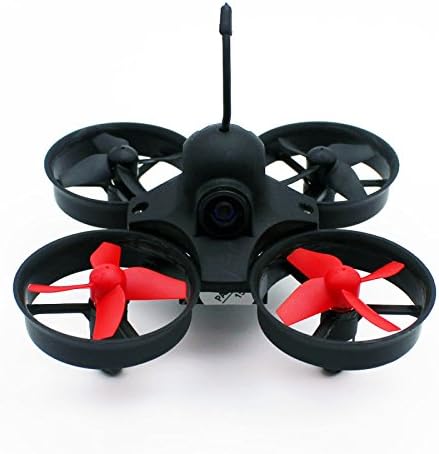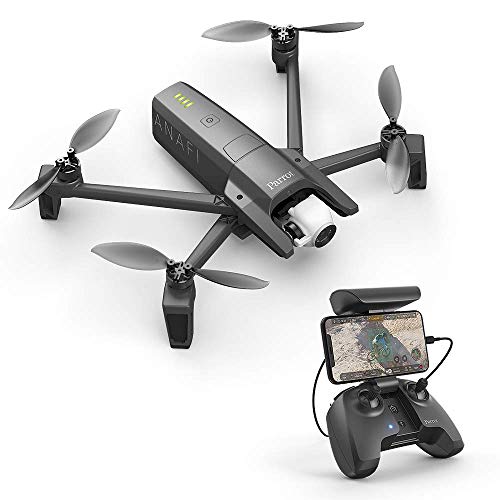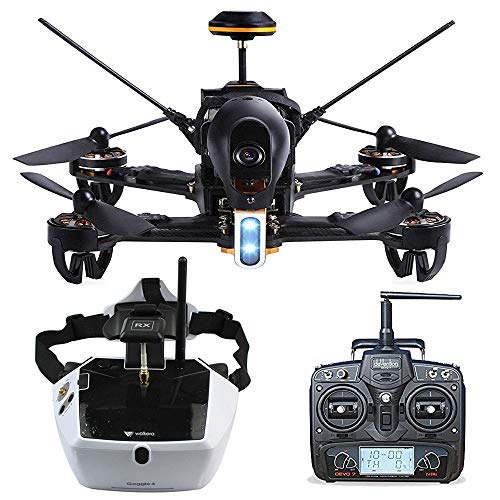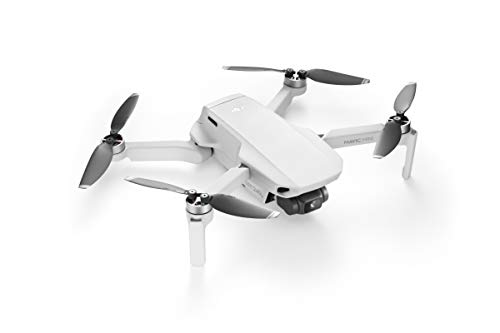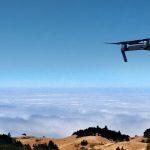DJI Mavic 2 Zoom Review
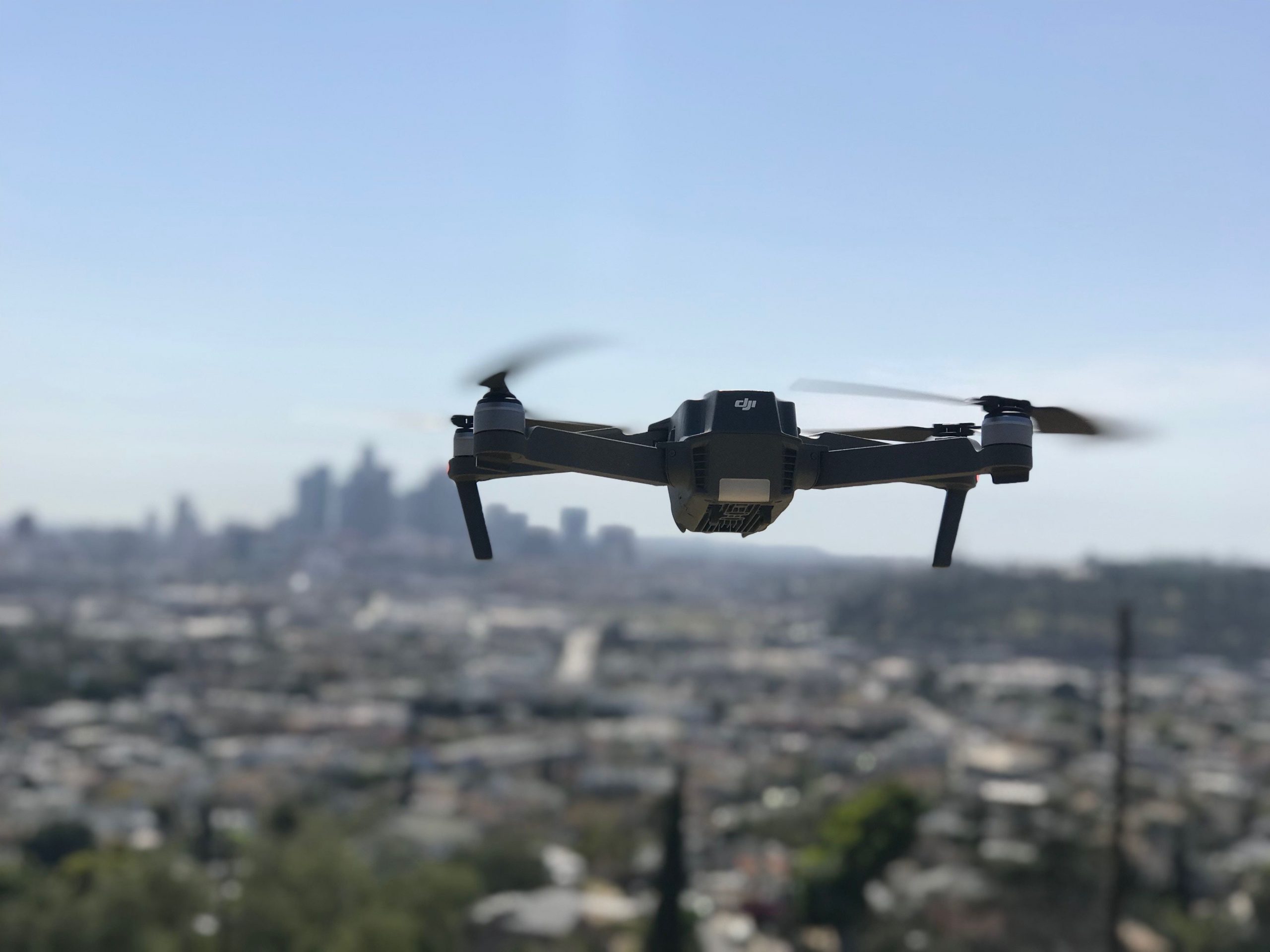
| Preview | Product | |
|---|---|---|
 | DJI Mavic 2 Zoom - Drone Quadcopter UAV with Optical Zoom Camera 3-Axis Gimbal 4K Video 12MP... | Buy on Amazon |
The DJI Mavic 2 Zoom stands as a remarkable triumph in the drone industry, showcasing an unparalleled feat of engineering. In this comprehensive review, we will delve into its capabilities, features, and advancements, drawing comparisons with its predecessor and other drones in the market. Beyond its elegant design, the drone incorporates cutting-edge technology from DJI and boasts camera collaborations with Hasselblad, promising a drone experience that exceeds expectations. Join us as we explore the exceptional qualities that set the DJI Mavic 2 Zoom apart in the world of aerial innovation.
The Mavic 2 Zoom has a panoramic camera which we shall review in a moment but being a professional quadcopter is suitable for:
- Aerial photography and video
- Surveying
- 3D mapping of building and structures
- Marketing videos
- Search and Rescue
- Filming sports and commercials
For an in depth overview of other types of drone, see our best drones review for 2024.
- Powered by a 1/2.3-inch 12MP sensor with...
- Up to 31 minutes flight time, 44 mph max...
- Functions include ActiveTrack 2. 0,...
- The standard remote controller offers up...
- What you get: DJI Mavic 2 Zoom,...
The Flight
The drone folds up in a compact and straightforward manner making it travel-friendly and has a total weight of about 900 grams. Its light weight is suitable for easy gliding even in windy conditions which is one of the reasons we’re impressed with the drone’s performance. Flights have a maximum service ceiling of up to five kilometers or 3.7 miles.
If you don’t have prior experience with drones, the quadcopter is pretty easy to fly. DJI Academy also has tutorials which you can watch to familiarize yourself with the controls. Similarly, you can use the flight simulator through the DJI Go 4 app.
You can fly the quadcopter in three ways only. Using the dedicated remote controller. Through the DJI Go 4 app connected to the smartphone.
The Satellite System
The Mavic 2 pro uses a GPS and GLONASS system. It ensures you always connect to the strongest GPS signal for safe flights. The dual satellite also ensures the quadcopter can connect to as many satellites as possible so that you can have a seamless operation of the following modes.
Assuming there is no wind resistance, the Mavic 2 has a maximum flight time of about 30 minutes at an average speed of 15 miles per hour. Hovering time is a minute shorter than flying time, but you should note that these speeds are subject to change mainly due to varying wind patterns and rates.
Maximum flight speed - The maximum rate at which the drone flies depends on the flight mode you choose. The fastest it can go is in the sports mode at 45 miles per hour.
Ascent and descent - The Mavic 2 pro is a beast when it comes to ascending. Using the remote controller, its fastest ascent speed is 16.4 feet per second in sports mode and 13 feet per second in P-mode. For the descent, it has a similar pace in both modes at 9.8 feet per second.
Flight Distance - At a consistent speed of 31 miles per hour and also assuming that there are no winds, the drone can cover a distance of 18 kilometers equal to 11 miles.
In windy conditions, zoom is stated to withstand wind speeds of up to 24 miles per hour.
Flight Modes Review
The Mavic 2 Zoom has 3 flight modes as follows;
Positioning mode - The mode uses GPS and vision to locate, stabilize and navigate the drone away from and between obstacles without getting derailed or hit. It requires a strong GPS signal for it to work well. Most of the intelligent flight modes are enabled when it's set to positioning mode.
Sport Mode - Is best for agility and speed making it suitable for high speed recording needs for example in racing and such. It therefore offers the fastest speeds for the drone. Vision mode for movement and locating obstacles is however disabled. The stick movements are more optimized for sports mode than positioning.
Tripod mode - Has limited flight speed, but the mode is best for holding the drone stable during shooting.
The Intelligent Flight Modes Reviews
The Mavic 2 Zoom has seven autonomous Intelligent Flight Modes;
ActiveTrack 2.0 Mode
The
ActiveTrack 2.0 flight mode is built to have better visual capability
than the Mavic Pro. It can sense up to 16 people or subjects which you
can then select to be the subject of tracking on the DJI Go 4 app. Then
the drone automatically adjusts its flight routine to follow the subject
you’ve chosen. The subject doesn’t have to be slow or immobile, the
mode works just as well when running, cycling, swimming or moving on
water, etc. and has a tracking speed of up to 45 miles per hour.
The active track also has:
Trace mode - Which tracks your subject at a constant distance and is configured to keep the subject in the frame during flight.
Spotlight mode - Which keeps the camera pointed in the general direction your subject is located.
The parallel mode - Which keeps the camera angle and distance from the subject constant during flight.
Hyperlapse
The shooting mode includes:
A free mode - Where the quadcopter is set to take photos to generate a time-lapse video.
Circle mode - The Mavic 2 Zoom will automatically take photos during flight after
you select the subjects and later simulate a time-lapse video.
Course Lock mode - Can be used in two ways.
Where the orientation is fixed. However, while in this mode you cannot select a subject. Where the copter is fixed to fly around an object.
Zoom Quick Shots
The
first Mavic quadcopter only had a variety of 6 Quick shots. Now the
Zoom has the Dolly Zoom which is a new and more advanced mode. All the
quick shots allow you to concentrate on capturing the subject in either
video or photo while the Mavic 2 flys autonomously.
Rocket Shot - Where the quadcopter ascends with the camera pointing downward.
Dronie Shot - Where the Zoom will fly backward and upward while the camera remains locked onto your subject.
Circle Shot - Where the drone circles around the same object.
Helix Shot - Is a spiraling upward flight mode while filing or taking shots.
Asteroid Shot - During this mode, the Zoom quadcopter flies backward and upwards around the subject while it takes photos then goes back to the starting point.
Boomerang Shot - This Zoom in this mode will fly exactly like a boomerang. Backward around the subject in a rising, oval trajectory and descends back in.
Dolly Zoom - This mode intends to provide new perspectives to your shots. So the Zoom will fly backward and upward while adjusting the lossless zoom during flight and focus on the object but the background to each shot will have changed.
Points Of Interest Mode
This mode is best for a stationary or slow-moving subject. You are supposed to set the circle radius, flight altitude, and speed manually. Using the pre-set settings, the copter will then fly around the object while taking shots.
This mode can also use GPS positioning where you can select the subject on the screen.
Waypoint Navigation Mode
Waypoint 2.0 on the Zoom no longer requires you first to mark the way points. Now you can simply mark the waypoints through the DJI Go 4 app. It allows you to plan a flight path quickly and you can also save it for use in another flight.
- Powered by a 1/2.3-inch 12MP sensor with...
- Up to 31 minutes flight time, 44 mph max...
- Functions include ActiveTrack 2. 0,...
- The standard remote controller offers up...
- What you get: DJI Mavic 2 Zoom,...
Cinematic Mode
The mode is customized to provide stable and smooth shots. In this mode, the Zoom’s braking distance is longer for that smooth stop. The rotation speed is reduced too.
TapFly Mode
The mode allows the Zoom to fly to wherever you tap on the app or the smartphone screen.
It has 3 modes of flight:
Forward - Where the copter flys towards the object b utilizing the Forward Vision System.
Backward - Where it flies away from the target using the Backward Vision System.
Free Mode - The copter flys freely towards the target or you can use the remote controller to direct it.
The Camera
The whole point in getting a drone is the new photography angles and perspectives it affords you. The powerful Mavic 2 zoom provides you exactly that and so much more.
A 12 Megapixel 4* zoom and 2* optical zoom.
A ½.3 inch 12 Megapixel sensor also with four* zoom and 2* optical zoom.
A 48 mm telephoto wide angle lens which has a greater reach to magnify the subject of photography, than the 28 mm wide lens, to enhance the parallax for effect. It compresses your perspective and gives off a classic cinematic look.
Lossless Zoom - Which is perfect especially if you are shooting Full HD videos. The lossless zoom will allow you to have a closer view especially if our subject is far away and enables you to capture more unique angles and scenes. It is also good when the airspace has a lot of traffic including trees, buildings, vehicles, and animals.
Quick and Accurate Focus - The new camera has a hassle back autofocus which combines both phase and contrast detection and an increased focus speed of 140%. This feature combines with the lossless zooming gives you sharp and clear shots
Zoom During Flight - The Mavic 2 Zoom has a Dolly Zoom feature for videography which automatically adjusts the focus by adding a visual wrapping effect. The Dolly Zoom feature is perfect during flight when you don’t have control over the focus speed values which you can otherwise set when flying manually.
Super 48 Megapixel Resolution Photos - Thanks to the telephoto lens in landscape mode, when you take a photo with a 24 mm field of view, the camera captures nine photos which are them patched to create a 48 Megapixel photo. Even in panorama, it will retain the accurate and original look of your subject.
H.265 Codec - The Zoom can also record 4K videos. Through H.265 compression you can be sure your videos are high quality with more visible details.
Video Transmission
Unobstructed and within the line of sight, the Mavic 2 has a maximum video transmission of 5 miles. For a better transmission experience, the Zoom has the OcuSync 2.0 Technology which supports 2.4 and 5.8 frequency bands which have a stronger interference resistance. The automatic switching is capable of delivering 1080 pixel transmissions. The remote controller video transmission has a resolution of either 720 p at 30 fps or 1080 p at 30 fps same as the DJI Goggles. Subject to signal interference, the video transmission latency falls between 120 and 130 milliseconds. Although the DJI app chooses the frequency band automatically, you can also manually select between 2.4 GHz and 5.8 GHz frequencies.
Obstacle Sensing
The
Mavic Zoom is omnidirectional meaning it can sense objects in 6
different directions which include left, right, up, down, forward and
backward sensing. However, it does not cover a 360-degree circumference.
Obstacle sensing for left and right directions in only available in
active track or tripod mode. How obstacle sensing works is that the zoom
drone is equipped with Vision systems in the front, back. Downward and
laterally and also it has up and down facing infrared sensing systems.
The systems are in the form of camera sensors located at excellent
locations.
The parallel vision systems are located on each side
of the drone. The downward sensory mechanism helps to maintain the
position of the drone and to hover with precision. The vision sensors
won't work well in poor lighting or total darkness. The infrared sensing
systems are both 2 and 3D infrared modules. Each one is located on the
top and bottom of the quadcopter. The vision and infrared systems help
to navigate indoors and in areas where the GPS signal is weak or
unavailable. In case you are flying in the fog or dark areas, the drone
has an auxiliary light located on the bottom of the drone. Reflective
and transparent surfaces impair the sensors.
The Advanced Pilot Assistance System (APAS)
The Mavic Zoom APAS system will is meant to allow the user to fly forward and backward in a bid to avoid obstacles around the object of interest. It automatically plans out a way out and around the barriers. If there is no way out, the drone will hover in place until something gives. It is however automatically disabled while using the intelligent flight modes and doesn’t work for sideways flight. Looking at the obstacle sensing we’ve discussed above; it is important to note that the lighting plays an important role and so APAS may not function appropriately in too dark and too bright conditions.
The Home Safety Feature
The Mavic Zoom has a Return To Home function which allows the drone to fly back to the last known home point.
It works in three ways:
The smart RTH - Initiated by the pilot through the app by tapping H or by pressing the RTH button on the remote.
Low battery RTH - It’s automatic when batter falls below a certain point.
Failsafe RTH - It is activated when the control signal is lost for 2 seconds if the home point had been recorded.
Other points to note are:
- The camera is replaceable.
- The internal storage is 8 GB expandable up to 128 GB.
- The drone does not support WiFi connectivity.
- The drone is not waterproof.
- Maximum charging time is 1.5 hours.
- Powered by a 1/2.3-inch 12MP sensor with...
- Up to 31 minutes flight time, 44 mph max...
- Functions include ActiveTrack 2. 0,...
- The standard remote controller offers up...
- What you get: DJI Mavic 2 Zoom,...
FAQs
No, the Zoom is a more simplified and cheaper version than the Pro.
Yes it does. The camera includes multiple modes too so you can create very dramatic images and clips.
Both are great but the Phantom 4 Pro is lowkey industrial tech while the Zoom is for casual photography.
If you are willing to practice, yes, the Zoom can help you grow as a photographer.
It has a dedicated home button. Click on it and it should return to you asap.


